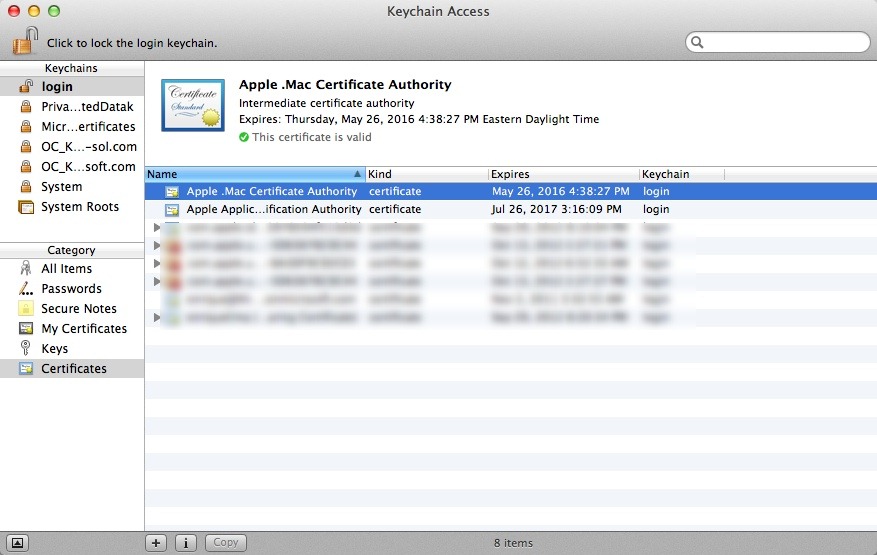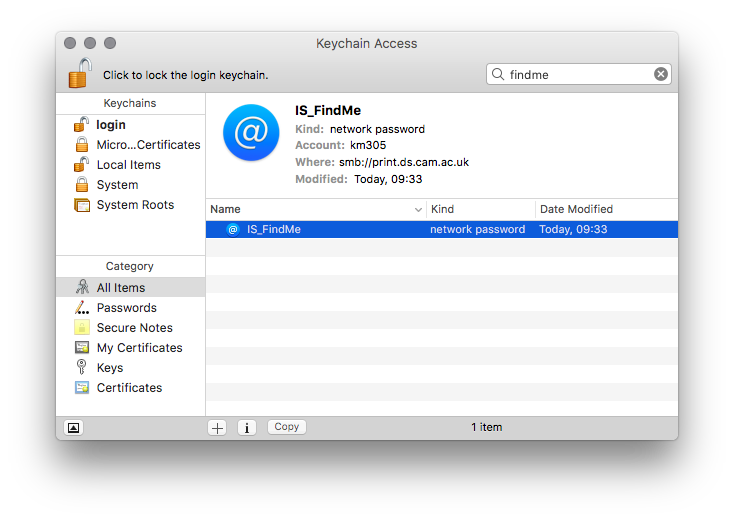
- Mac keychain access utilities software#
- Mac keychain access utilities password#
- Mac keychain access utilities mac#
Mac keychain access utilities mac#
Keychain was one of the few parts of PowerTalk that was obviously useful "on its own", which suggested it should be promoted to become a part of the basic Mac OS.


At the time, implementations of this concept were not available on other platforms.
Mac keychain access utilities password#
The passwords were not easily retrievable due to the encryption, yet the simplicity of the interface allowed the user to select a different password for every system without fear of forgetting them, as a single password would open the file and return them all. The keychain concept naturally "fell out" of this code, and was used in PowerTalk to manage all of a user's various login credentials for the various e-mail systems PowerTalk could connect to. Among its many features, PowerTalk used plug-ins that allowed mail to be retrieved from a wide variety of mail servers and online services. Keychains were initially developed for Apple's e-mail system, PowerTalk, in the early 1990s. If this happens, the user can restore the keychain file in ~/Library/Keychains/ from a backup, but doing so will lock the keychain which will then need to be unlocked at next use. This means keychain passwords will not be remembered from one session to the next, even if the login password has not been changed. Some network administrators react to this by deleting the keychain file on logout, so that a new one will be created next time the user logs in. Also, if the password is changed from a directory service like Active Directory or Open Directory, or if the password is changed from another admin account e.g. On a shared Mac/non-Mac network, it is possible for the login keychain's password to lose synchronization if the user's login password is changed from a non-Mac system. If the login keychain is protected by the login password, then the keychain's password will be changed whenever the login password is changed from within a logged in session on macOS. as part of a restore operation) also causes the keychain to lock and a password is required at next access. Overwriting the file in ~/Library/Keychains/ with a new one (e.g.

When locked, the password has to be re-entered next time the keychain is accessed, to unlock it. The keychain may be set to be automatically "locked" if the computer has been idle for a time, and can be locked manually from the Keychain Access application. The Keychain Access application does not permit setting an empty password on a keychain. The default keychain file is the login keychain, typically unlocked on login by the user's login password, although the password for this keychain can instead be different from a user's login password, adding security at the expense of some convenience. The time which each credential is decrypted, how long it will remain decrypted, and whether the encrypted credential will be synced to iCloud varies depending on the type of data stored, and is documented on the Apple support website. The keychain database is encrypted per-table and per-row with AES-256-GCM. The command line equivalent of Keychain Access is /usr/bin/security.
Mac keychain access utilities software#
It is free, open source software released under the terms of the APSL-2.0. In macOS, keychain files are stored in ~/Library/Keychains/ (and subdirectories), /Library/Keychains/, and /Network/Library/Keychains/, and the Keychain Access GUI application is located in the Utilities folder in the Applications folder.


 0 kommentar(er)
0 kommentar(er)
